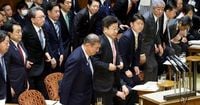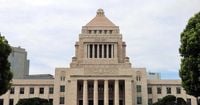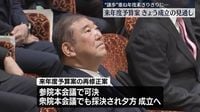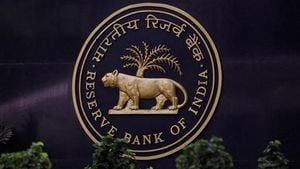The 2025 budget is set to pass on March 31, 2025, marking a significant milestone in Japanese politics. The revised budget bill, which includes a full freeze on the increase of self-pay caps for high medical expenses, is expected to be approved by the House of Councillors Budget Committee in the morning session and subsequently in the plenary session later in the day. This will then lead to the bill being sent back to the House of Representatives for a vote.
Support for the budget bill is anticipated from the ruling coalition, which includes the Liberal Democratic Party (LDP), Komeito, and the Nippon Ishin no Kai, who are expected to back the revised proposal. This will be the first time that a budget bill has been amended in the House of Councillors and passed with the consent of the House of Representatives under the current constitution.
Prime Minister Ishigaki, who leads a minority government, has faced challenges in compiling the budget, requiring cooperation from opposition parties to amend the initial budget proposal. The government had originally approved a general account total of 115 trillion 541.5 billion yen in December 2024. Following negotiations and requests from opposition parties, the ruling coalition submitted a revised bill on February 28, 2025, reducing the general account total by 343.7 billion yen to 115 trillion 197.8 billion yen.
Among the notable amendments is an additional allocation of 106.4 billion yen for the free high school tuition initiative demanded by Nippon Ishin. Starting in 2025, the income limit for tuition support will be abolished, allowing for a payment of 118,800 yen per year to all households, regardless of whether they attend national, public, or private schools.
The budget also reflects a reduction in revenue by 621 billion yen due to an increase in the income tax exemption threshold, commonly referred to as the '1.03 million yen wall.' The Democratic Party for the People had proposed raising this limit to 1.78 million yen without any income restrictions, but the ruling parties were unable to reach an agreement with them, resulting in their lack of support for the budget bill.
This marks a historic moment, as it is the first time in 29 years that the initial budget bill has been amended in the Diet, with the last occurrence dating back to 1996. The amendments also signify the first reduction in the budget since 1955, a notable departure from the trend of increasing spending.
As the House of Councillors prepares to vote on the budget, Ishigaki's administration has prioritized the passage of the budget within the current fiscal year as its top agenda item. The budget bill was initially submitted on January 24, 2025, coinciding with the convening of the ordinary Diet session. The government has made efforts to address the concerns of both ruling and opposition parties, reflecting a collaborative approach to governance.
After the budget proposal is sent to the House of Councillors, further modifications were introduced, including a complete freeze on the increase of the self-pay cap for high medical expenses. This revision requires an expenditure of 10.5 billion yen, aimed at ensuring that citizens do not face increased financial burdens for medical care.
In conclusion, the passage of the 2025 budget represents a significant achievement for the Ishigaki administration, reflecting the necessity for collaboration in a minority government. The amendments made to the budget not only address the immediate needs of citizens but also set a precedent for future budgetary discussions in Japan.






